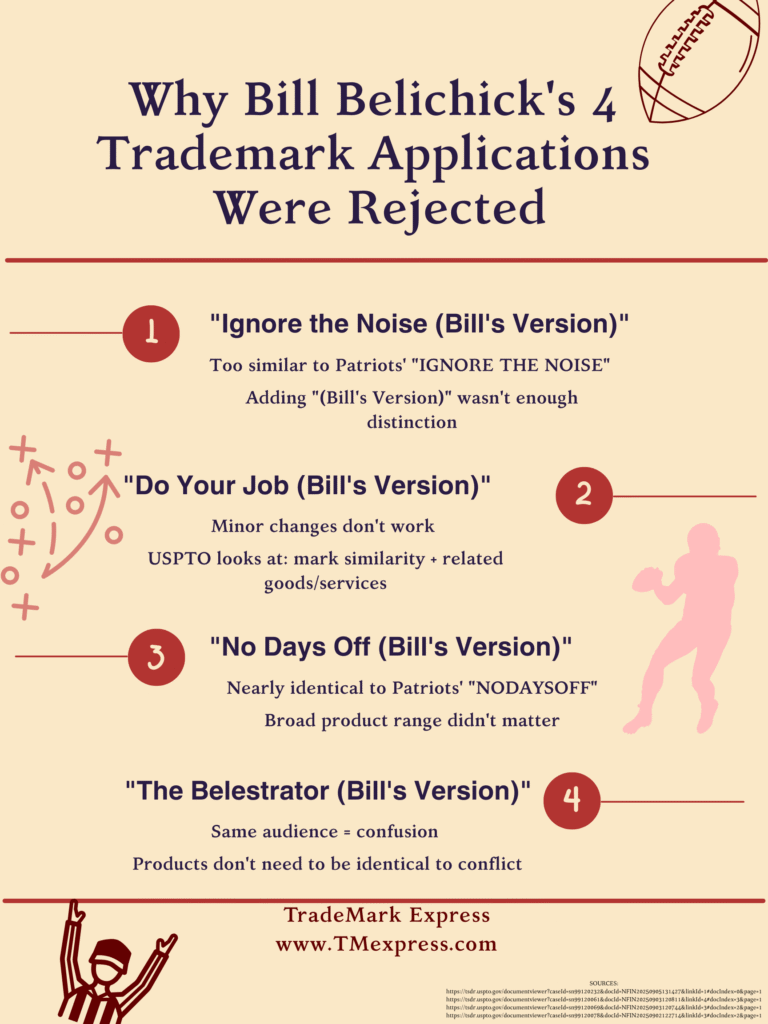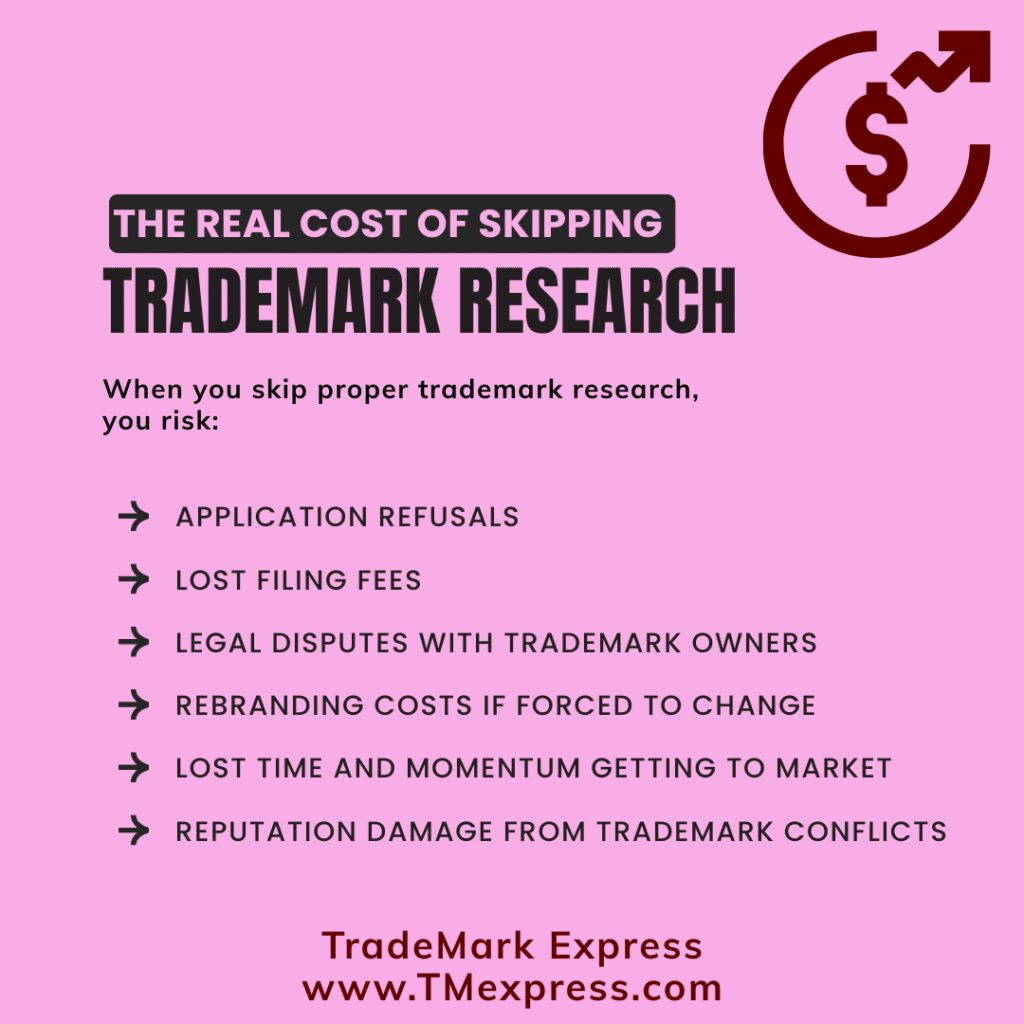Bill Belichick's Trademark Rejections: A Warning for Business Owners
When even NFL legend Bill Belichick faces trademark rejections, it’s time for every business owner to pay attention. This spring, four of Belichick’s trademark applications were rejected by the U.S. Patent and Trademark Office (USPTO). If it can happen to a household name, it can definitely happen to your business.
The Belichick Trademark Disaster: What Went Wrong
Bill Belichick and Jordon Hudson, working through TCE Rights Management, filed several trademark applications this year. Four applications were flat-out refused by the USPTO:
The reason? All four marks were deemed confusingly similar to trademarks already owned by the New England Patriots. This outcome demonstrates why comprehensive trademark research is crucial for every business, regardless of size or recognition.
Breaking Down the USPTO's Rejections
Ignore the Noise (Bill's Version): Sound, Appearance, and Meaning Matter
The USPTO found this mark too similar to the Patriots’ existing “IGNORE THE NOISE” trademark. Despite covering different products like clothing, podcasts, and merchandise, the office determined that consumers would likely be confused about the source of these goods. The key lesson? Adding “(Bill’s Version)” wasn’t enough to create distinction.
Do Your Job (Bill's Version): Minor Changes Don't Equal New Trademarks
Simply adding “(Bill’s Version)” or punctuation doesn’t make a trademark sufficiently different. The USPTO examines two critical factors: how similar the marks are and whether the goods and services are related. Since both marks covered overlapping products like clothing and sports commentary, confusion was inevitable.

No Days Off (Bill's Version): Virtually Identical Means Rejection
This application was deemed nearly identical to the Patriots’ “NODAYSOFF” and “NO DAYS OFF ENTERTAINMENT” marks. Even though Belichick’s application covered a broad range of products—from films to podcasts—the USPTO ruled that these goods were closely related to existing offerings.
The Belestrator (Bill's Version): Same Audience, Same Problem
The USPTO concluded this mark was confusingly similar to the Patriots’ “THE BELESTRATOR.” The office noted that goods and services don’t need to be identical to cause confusion—they just need to be related or likely perceived as coming from the same source.
Why These Rejections Highlight the Need for Comprehensive Trademark Research
These rejections illustrate a fundamental truth: thorough trademark research is essential for every business. Comprehensive trademark research involves examining similarities in sound, appearance, and meaning while searching federal trademark and state trademark databases as well as common law databases.
The Belichick case shows that even well-known figures and established brands can face trademark challenges when existing marks create potential conflicts.
The Real Cost of Skipping Trademark Research
When you skip proper trademark research, you risk:

- Application refusals and lost filing fees
- Legal disputes with existing trademark owners
- Rebranding costs if you’re forced to change your name
- Lost time and momentum in bringing your product to market
- Damage to your reputation from trademark conflicts
Comprehensive Trademark Research Is...
At TradeMark Express, comprehensive trademark research goes far beyond a basic database search.

We examine:
- USPTO federal trademarks for exact and similar matches
- State trademark registrations across all 50 states
- Common law usage through online and offline channels
- Similarities in sound, appearance, and meaning that could cause confusion
- Related goods and services that might compete in the marketplace
This mirrors exactly what the USPTO considers when evaluating likelihood of confusion: the similarity of the marks and the relatedness of the goods and services.
Learning from High-Profile Trademark Challenges
The Belichick trademark challenges prove that conflicts can affect anyone, regardless of fame or resources. These high-profile rejections demonstrate why comprehensive trademark research—examining federal databases, state registrations, and common law usage for similarities in sound, appearance, and meaning—is vital for every business. Smart business owners understand that proper trademark research isn’t an expense, it’s insurance against much costlier problems down the road.
Protect Your Brand Before You File
Ready to avoid the costly mistakes that derailed Belichick’s trademark applications? TradeMark Express provides comprehensive trademark research that identifies potential conflicts before you file. Our thorough searches examine federal, state, and common law databases to give you confidence in your brand’s future.
Order your comprehensive trademark search today and move forward knowing your brand has the strongest foundation possible.
